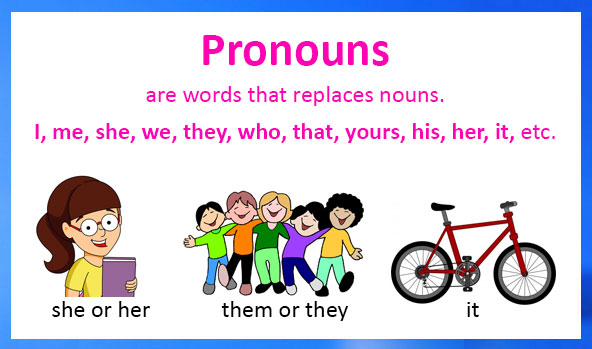

So, what a pronoun does is it allows you to take out the unnecessary noun when we're very certain we We don't need to sayĮmma and then Emma again. We're still talking about Emma, we don't need to say that name twice. Sentence talking about Emma, and we're pretty sure that But, people are smart, right? We have relatively long attention spans, and so if we start off a

Then we say Emma's again, and then we say Zach and the log, and then we say Zach and the log. So, these sentences don't have pronouns, but what they do have is repeated nouns. Emma laughed so hard, milkĬame out of Emma's nose. We're going to start talkingīegins with the question, What are pronouns? Allow me to answer that questionīy way of a demonstration. Is this sentence correct? If it is, is there any case that a singular pronoun can precede a plural pronoun? But in this sentence 'It is' is followed by a plural pronoun 'those' and then a plural 'noun'. In this 2nd sentence, Is it okay to have the singular pronoun 'It' and the plural pronoun 'those' closely? Because, as the sentence starts with 'It is', one usually expects a singular noun to come next.

It is those people who actually contributed to the growth of this organization. But it's bugging me whether or not to use the pronoun 'where' after 'a period of time' in a sentence. And the word 'days' denotes a period of time. Is it wrong to use the pronoun 'where' after the noun 'days' in the above sentence? I am aware that 'where' denotes a place. These are our days where the term 'sharing' has become almost virtual. As I always believe, I hope I'll get a solution here.ġ. I just got stuck with doubts while forming sentences. It's wonderful to meet you all after a long time.


 0 kommentar(er)
0 kommentar(er)
